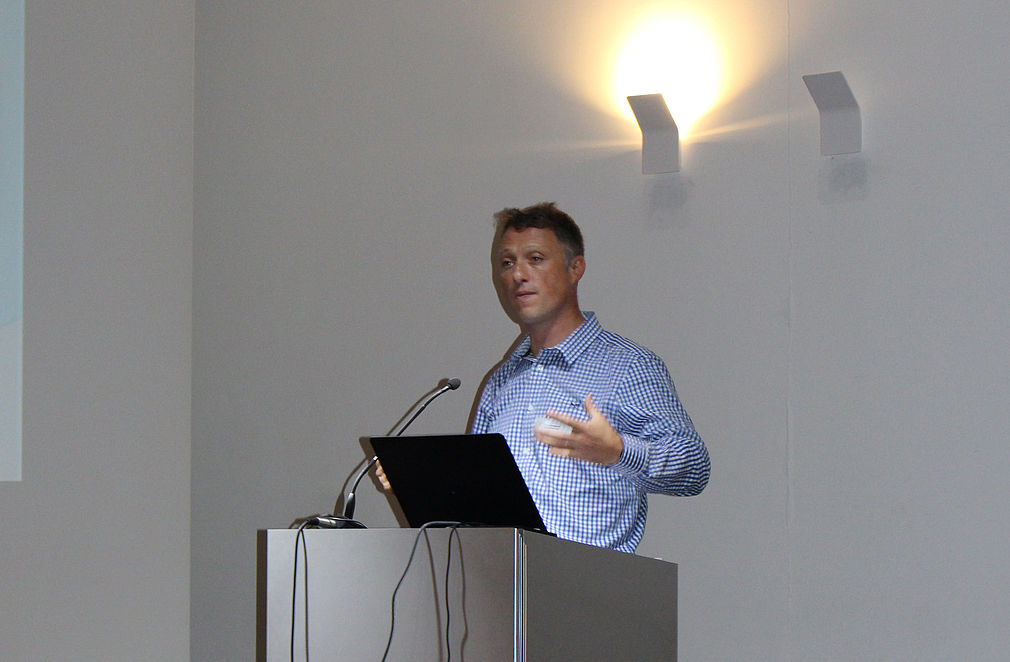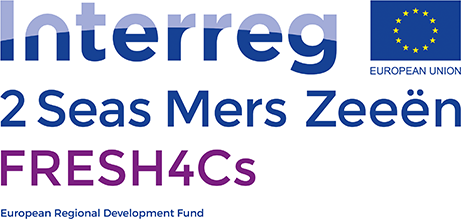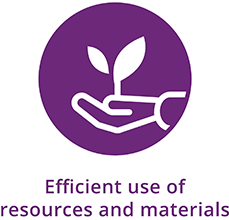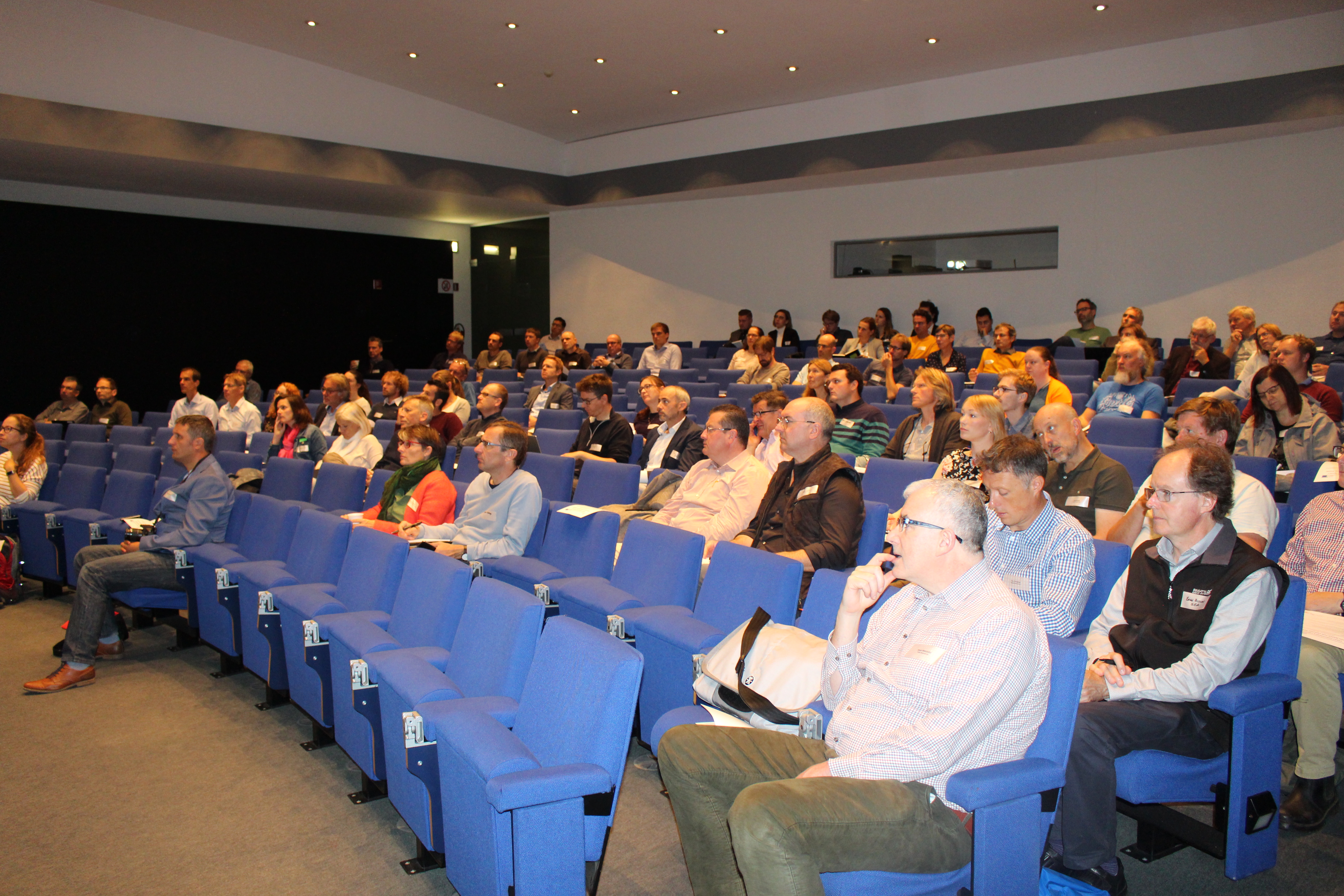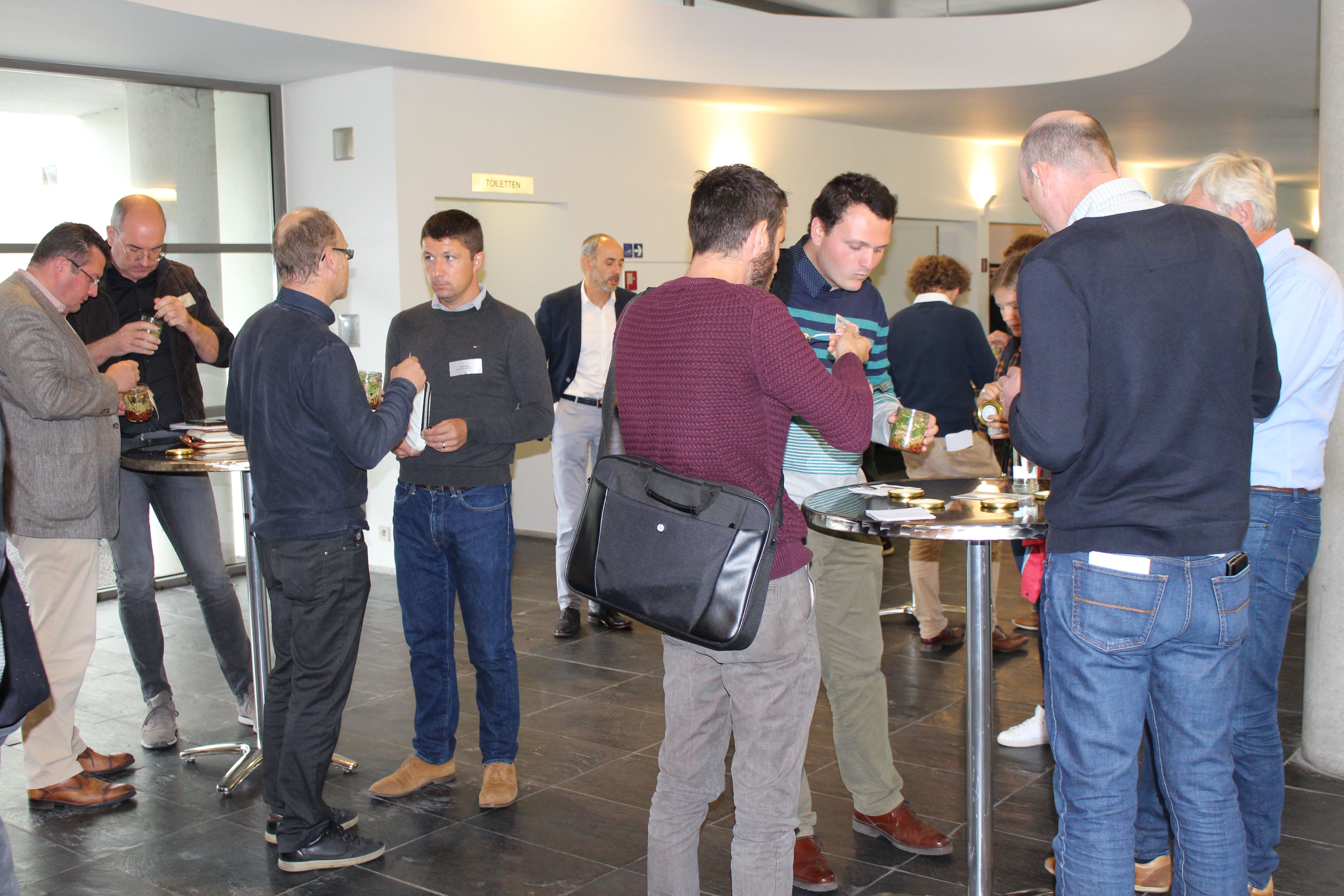The conference brought an overview of the demonstration and challenges of the FRESH4Cs project and gave the participants also new insights related to the management of fresh water resources in coastal regions: water buffering, aquifer recharge, desalination and water and agricultural governance. In this report we shortly recount the speaker’s presentations.
Huub Rijnaarts, Wageningen University and Research (NL)
Huub Rijnaarts (Wageningen University) talked about climate change and the impact on our coasts and the local fresh water supply. He presented the principle "salt water where possible, fresh water where necessary": salt (or brackish) water could be actively used in the future for all applications that do not require fresh water, for example toilet flushing.
Efforts must also be made to increase the fresh water reserves (e.g. by aquifer recharge ) in coastal areas. A better organization of the water-related infrastructure in is needed and strategies to bring water users closer to the available water supply in combination with local, decentralized water treatment are to be developed. Huub Rijnaarts also promoted new solutions for partial reuse of the cooling water (blowdown water) at industrial sites.
Click here for Huub Rijnaarts presentation
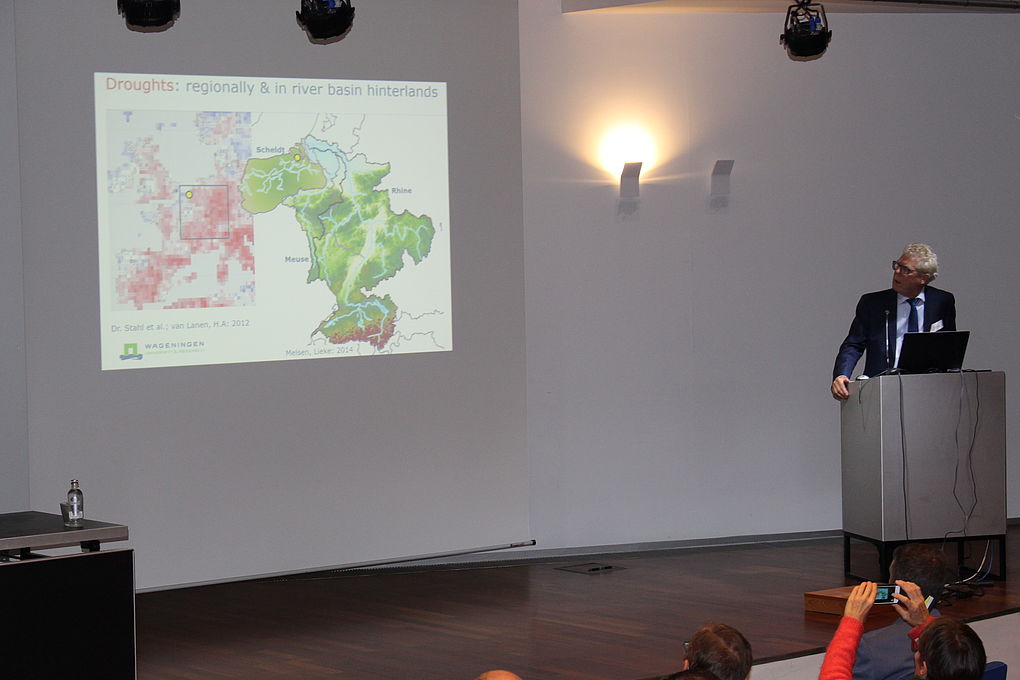
Jan Verheeke, Minaraad Vlaanderen
Jan Verheeke from the Flanders Environment and Nature Council (Minaraad Vlaanderen, Flemish Environment and Nature Council) presented an international policy perspective on the freshwater supply in coastal regions, like the relationship between water and the SDGs. This was followed by an overview of the challenges related to the EU Water Framework Directive (WFD) were also presented. Verheeke stated that water is more than ever on the international agenda, but that concrete solutions need to be developed at a regional, local and water body scale. The challenge is to set up structures that create the willingness to pay for solutions or new investments. He also emphasized the importance of projects such as FRESH4Cs and the importance of participatory schemes with local actors and a permanent dialogue with all fresh water users.
Click here for the full presentation of Jan Verheeke
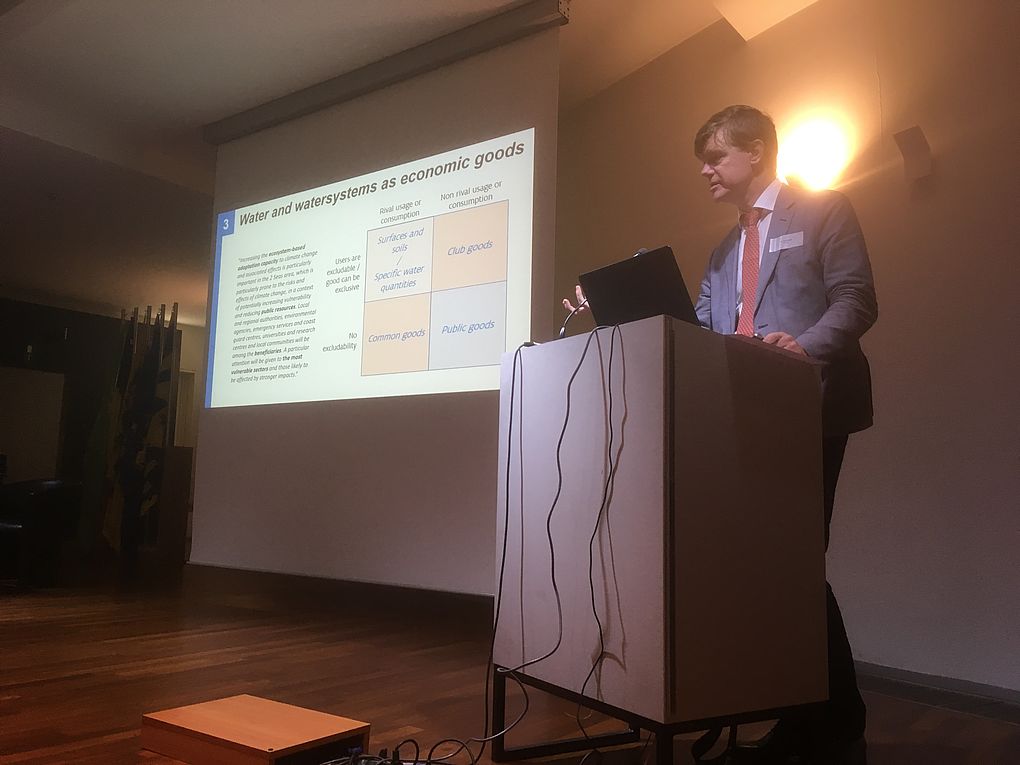
Alexander Vandenbohede, De Watergroep
Alexander Vandenbohede is a hydrogeologist at drinking water company De Watergroep. He offered the audience an overview of the geological origin of fresh and salt waters in the Belgian coastal plains, and how land reclamation (polders) and flooding have influence the geohydrology of thae region. The geological origin of the salt water in the polders was discussed in more detail, demonstrating that most salt water has a historical origin and cannot (easily) flow back to the sea due to the hydrological barrier function of the dunes. On top of this historic salt water layer there are fresh water layers (lenses) that vary widely in thickness. The thickness of these fresh water lenses depends on the local (superficial) geology, where we see that the thickest fresh water layers occur in the dunes and at so called ‘creek ridges’ (sand bodies in the otherwise clayey polders, that were formed as tidal creeks).
Click here for the full presentation of Alexander Vandenbohede
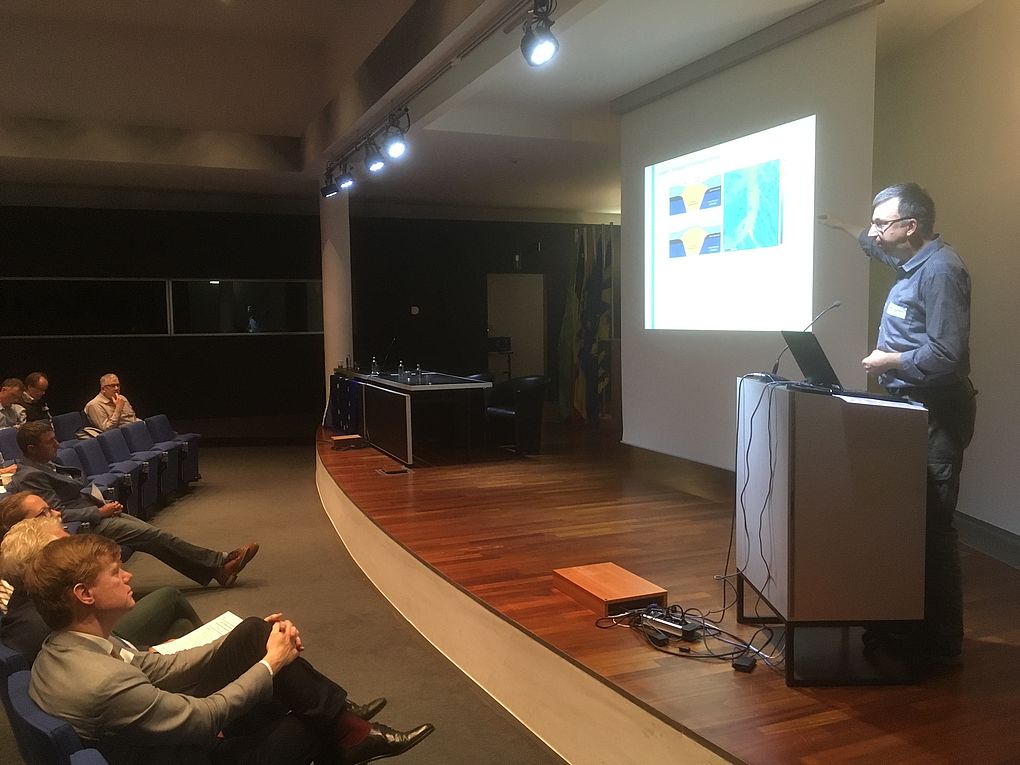
Marjolein Vanoppen, Ghent University
Marjolein Vanoppen (Ghent University) presented the possibilities of seawater desalination as part of future fresh water supply in coastal regions. She mapped out the world's fresh water consumption and the available fresh and seawater resources. Then she focused on the desalination of seawater. Traditionally, this is only applied in regions where seawater is the only possible source for drinking water production due to the high (energy) cost. The efficiency of desalination increased significantly in recent decades, and newly developed technology based on electrodialysis with membrane filtration shows very promising test results. Moreover, the concept is very compatible with the flexible use of renewable energy. Concepts of desalination that work with energy surpluses from offshore wind farms or the integration in multifunctional platforms at sea are currently part of demonstration projects and show good initial results.
Click here for the full presentation of Marjolein Vanoppen
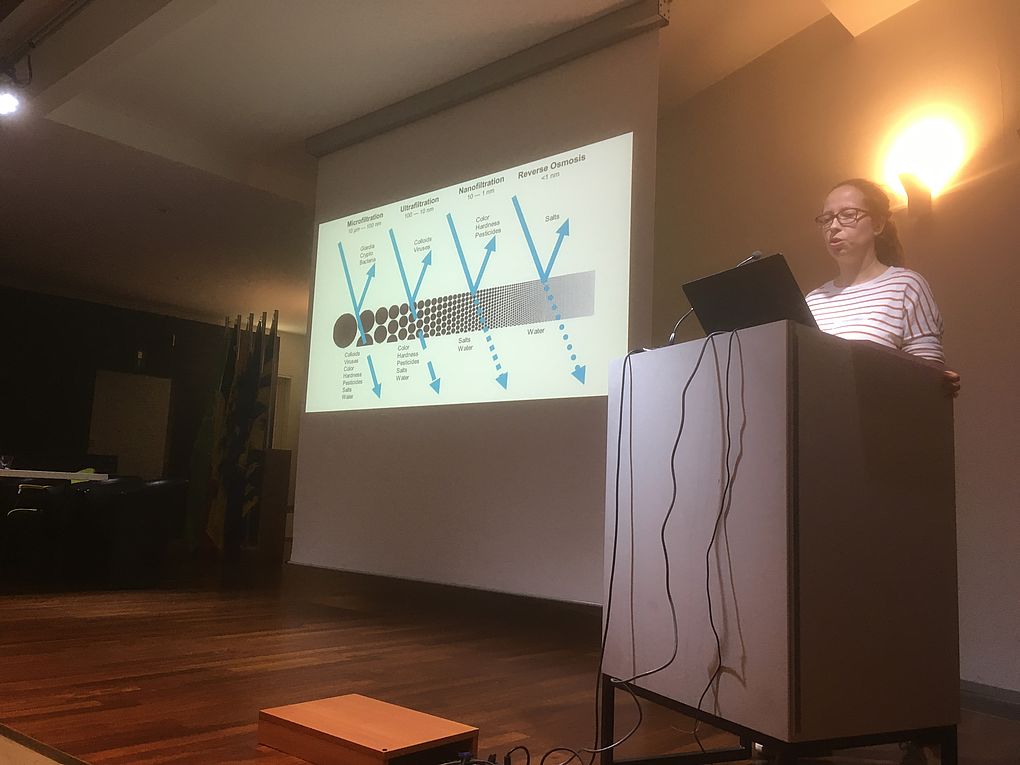
Steve Moncaster, Water Resources East
Steve Moncaster from Water Resources East (WRE) in the United Kingdom presented their approach for a future-oriented, sustainable water supply in Eastern England. Without concrete actions, the local water supply will be confronted with serious problems in the future. The approach presented is holistic and versatile and it seeks to respond to all needs and opportunities through a broadly consulted and well-planned long-term approach. The actions are part of well-integrated land and water management. Investments in new water buffering capacity and focus on strategic sharing and exchanging of water resources between companies and sectors are essential in the strategy of WRE. Specific water reuse projects are also planned in the coastal area around Felixstowe (as a part of the FRESH4Cs project).
Click here for the full presentation of Steve Moncaster
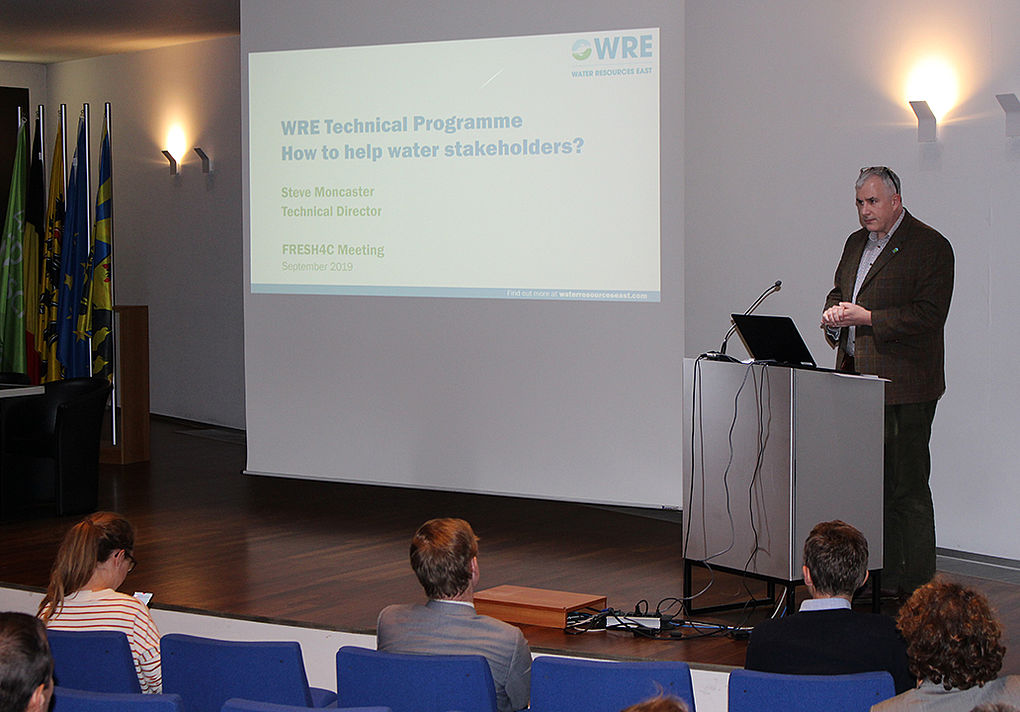
Tom Ormesher, National Farmers Union
Tom Ormesher of the National Farmers Union in the United Kingdom started his presentation with the fact that a sustainable water supply for agriculture is crucial, in view of the continuously growing world population. Over recent years, Ormesher visited various sustainable water projects worldwide that offer inspiration for the development of more sustainable water systems in Western Europe. Such initiatives are mostly part of broader rural development and efforts to make the local farming activities more resilient. Ormesher emphasized that most projects he visited combine market-based solutions with environmental and social benefits. He conclude that projects establishing a dialogue and cooperation between farms, water managers and drinking water production companies offer good results in several places around the world. But these participatory projects can only lead to results when one of the local actors takes the leadership to tackle the water challenges.
Click here for the full presentation of Tom Ormesher
